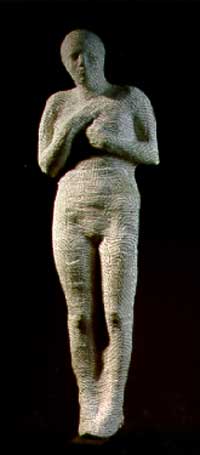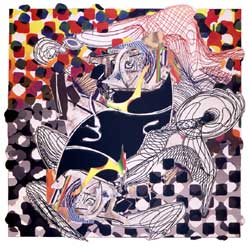Day 7: Thursday, February 9, 2006
Moby-Dick (The Third Quarter...)
Are you reading it too late? Too soon?
Laura S.: I am angry that books are labeled "Classics" and force-fed to us by overanxious parents and/or English teachers before we are ready to read them, because then we run away screaming from the genre.
Angeldeep: I have a kind of uneducated reading of the book...which I'm trying to refocus as we proceed....I definately agree that readings are greatly context based, especially humor....my understanding of the branch of religion he is talking about doesn't really allow for me to pick up on this.








